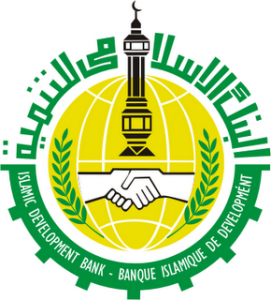Application Deadline: 13th September 2017
Eligible Countries: Developing countries
To Be Taken At (Country):
About the Award: Building on the success of its Policy Analysis on Growth and Employment (PAGE) program (2012-2015), PEP has been granted funding by the Department for International Development (DFID) of the United Kingdom (or UK Aid) and the International Development Research Centre(IDRC) of Canada in 2016 to launch a new program supporting high quality research, capacity development, and policy engagement for growth and employment in developing countries: PAGE II.
In accordance to PEP’s core mission, the PAGE II initiative includes an important “capacity building” component. Through this initiative, PEP will allow numerous teams of researchers, based in developing countries, to benefit from the unique and manifold PEP “Grant Plus” support program as they conduct high quality research projects.
One particular feature of PAGE II is that, although proposals are welcome from all developing countries, priority is given to researchers from and based in low-income countries (LICs), fragile and/or conflict states – see list of targeted countries. At least 40% of projects supported by PEP through the PAGE II program will be led by teams of researchers from these countries.
Fields of Research: For this second PAGE II call for proposals, five priority themes are
- Youth employment: supply- and demand-side constraints and related policy options
- Gender and women’s economic empowerment
- Entrepreneurship and financial inclusion
- Productive employment in rural farm and non-farm sectors – increasing labour productivity and reducing factor market imperfections
- Sectoral composition and patterns of economic growth – implications for job-creation, employment and poverty reduction
Type: Contest/Award
Eligibility: Applicant teams must:
- Be gender mixed, with female members representing at least 50% of all members (including the team leader).
- Be composed of at least two (2) junior researchers (aged under 30), all contributing substantively to the proposed research project.
- Have a maximum of four members, except for field experiments (maximum five members; the fifth member needs additional justification)
- Be comprised exclusively of individuals born and living in a developing country.
- Present a sufficient academic and/or professional background in economics research/policy analysis. In particular, having a masters degree/diploma or being currently enrolled in a masters program is considered a minimum requirement (team leaders would normally have a doctoral degree/diploma or be currently enrolled in a doctoral program).
PEP encourages teams with a female leader.
Each team should identify one team member who has the expertise and capacities to replace the team leader if the latter is not able to complete the project for any reason.
Priority is given to low income countries (LICs), fragile and/or conflict states, but proposals are welcomed from all developing countries.
Only the field experiments are contracted with institutions. All other projects are contracted with individual researchers (team leaders).
Selection Criteria: For this call, PEP will support policy analysis projects that use one of the following approaches/methods:
• Field experiments
• Macro-micro policy simulations (using CGE models)
• Microeconomic analysis
• Field experiments
• Macro-micro policy simulations (using CGE models)
• Microeconomic analysis
Number of Awards: Not specified
Value of Award:
- Basic PAGE II funding is up to $58.5 K, including $22 K in a research (cash) grant and up to $36.5 K in various subsidies, such as for participation in PEP meetings and study visits, for publications in peer-reviewed journals, for presentations in international conferences, and for the organization of national policy conferences, etc.
- Additional financing (US$15 K) will be allocated for projects involving field experiments.
- All selected teams will benefit from mentorship to ensure an effective policy engagement and communication strategy, maximizing the chance that the research will be taken up in policy processes.
How to Apply: Applications must be submitted via the PEP intranet system, before September 13, 2017 (23h59, EST). Here are the steps to follow:
- ALL members of the applicant teams must register on the PEP website BEFORE submitting a new proposal. To register, click Register (see also the top right corner of the PEP website header, next to “Login”) and follow the instructions.
- You will receive a username and password by email, normally within minutes, that will allow you to access your PEP intranet file, by clicking on the Login button (also top right corner above). Note that you can change your password yourself, through your personal intranet profile, anytime.
- ALL members of the applicant team must complete their PEP intranet profile, including their personal CV, a photo, and short professional bio. To do this, each member should Login to the PEP website and then select “Profile” (and then “Upload CV“, “Upload photo”, etc.).
- To then submit the proposal, the team leader must login, click on “Submit New Proposal” and fill out the required information and upload all required documentation using the proposal templates (to upload when completed) as provided below – see “content of proposals“.
- Once finished, to make sure that the proposal has been successfully submitted to PEP, simply return to your PEP intranet file and click on “My Projects“.
Award Providers: Department for International Development (DFID) of the United Kingdom (or UK Aid) and the International Development Research Centre(IDRC) of Canada
